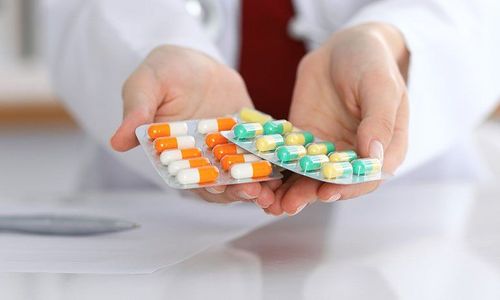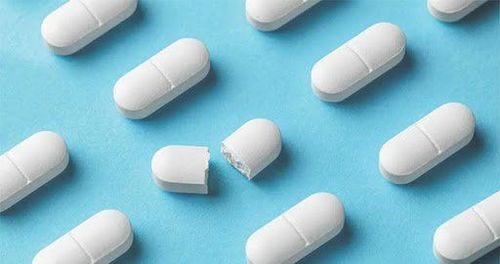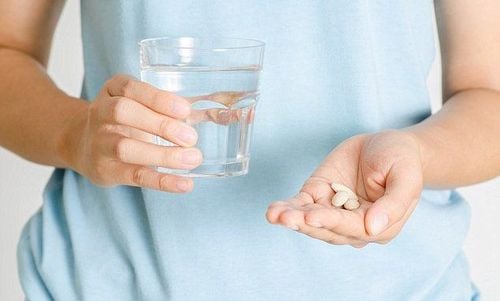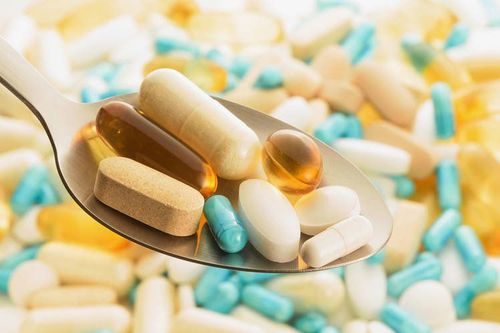This is an automatically translated article.
Epfepara Codeine has any effect, can it relieve pain and reduce fever? With the main ingredients Acetaminophen and Codeine, Epfepara Codeine is used to reduce fever and relieve pain for moderate to severe pain.
1. What does Epfepara Codeine do?
Epfepara Codeine belongs to the group of pain relievers and antipyretics, non-steroidal anti-inflammatory drugs, with the main ingredients being Acetaminophen 500mg and Codeine 15mg. Codeine has analgesic, cough-reducing, and sleep-inducing effects. Paracetamol has analgesic and antipyretic effects.Epfepara Codeine is made in the form of effervescent tablets and is indicated for use in the treatment of dry cough, rapid relief of moderate to severe pain and has been taking Acetaminophen or Aspirin but not relieved such as:
Headache; Nerve pain; Muscle pain, low back pain; Hurt all of the body; Dysmenorrhea ; Pain after tooth extraction or vaccination with fever.
2. Usage and dosage of Epfepara Codeine
Epfepara Codeine is to be taken orally, put the tablet in a glass of water and wait for the medicine to effervescent completely and then drink.
Dosage of Epfepara Codeine for children over 12 years old and adults is recommended 1 tablet / time and take about 3-4 times / day or 1-2 tablets / time and take about 1-3 times / day (depending on pain level), each dose is spaced at least 4 hours apart. For patients with renal failure with creatinine clearance less than 10ml/min should be taken at least 8 hours apart.
Overdose of Epfepara Codeine can cause symptoms such as nausea, vomiting, loss of appetite, abdominal pain, pale skin. In particular, an overdose of Acetaminophen can cause impaired liver function. Excessively high doses of more than 10 g in adults and 150 mg/kg body weight in children can cause decomposition and lead to completely irreversible liver necrosis, metabolic acidosis, encephalopathy and coma. or even death.
For Acetaminophen overdose in Epfepara Codeine, the patient needs to be diagnosed early for treatment, especially in case of severe poisoning, the patient needs to receive active supportive treatment.
Most patients with an overdose of Epfepara Codeine require gastric lavage within 4 hours of ingestion, detoxification therapy with parenteral or oral N-Acetylcysteine.
Overdose of Codeine can cause respiratory failure, lethargy, lethargy or coma. Patients present with cold and moist skin, soft muscles, slow pulse, and low blood pressure. Severe cases can cause respiratory arrest, cardiac arrest, cardiovascular collapse, and death.
For Codeine overdose in Epfepara Codeine, the patient needs oxygen to restore breathing. Severe cases may require intravenous Naloxone.
3. Epfepara Codeine side effects
With usual therapeutic doses, Epfepara Codeine may cause some unwanted side effects such as drowsiness, nausea, vomiting, dizziness, constipation. Very rarely side effects are respiratory depression, bronchospasm and allergic skin reactions.
4. Some notes when using Epfepara Codeine
Do not use Epfepara Codeine in people with hypersensitivity to the ingredients of the drug, people with asthma, respiratory failure, liver failure, pregnant or nursing women, children under 6 years old or weighing less than 15kg. Do not take Epfepara Codeine with other drugs that contain Acetaminophen because it may lead to an overdose. Using the drug in high doses and for a long time can damage liver cells. Do not drive or operate or operate machinery while taking Epfepara Codeine as it may cause drowsiness. People with a history of drug addiction or asthma in particular, and respiratory diseases in general should be cautious when using Epfepara Codeine. Co-administration of Epfepara Codeine with drugs that neutralize stomach acid may delay the absorption of oral Acetaminophen. Co-administration of Epfepara Codeine with antidepressants, Barbiturates, Carbamazepines, Phenytoin may affect the drug's action. Concomitant use of Epfepara Codeine with analgesics, cough suppressants or other opiate derivatives may cause respiratory depression. Epfepara Codeine can interact with alcohol, anticonvulsants, Isoniazid, Quinidine and make the component of Codeine ineffective if taken at the same time. The use of Epfepara Codeine is to reduce fever and pain. It is used to relieve cough, relieve moderate to severe pain. To ensure safety for your health and maximize the effectiveness of your treatment, you need to take Epfepara Codeine exactly as directed by your doctor.













